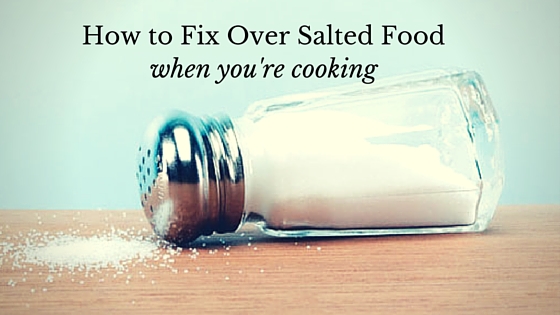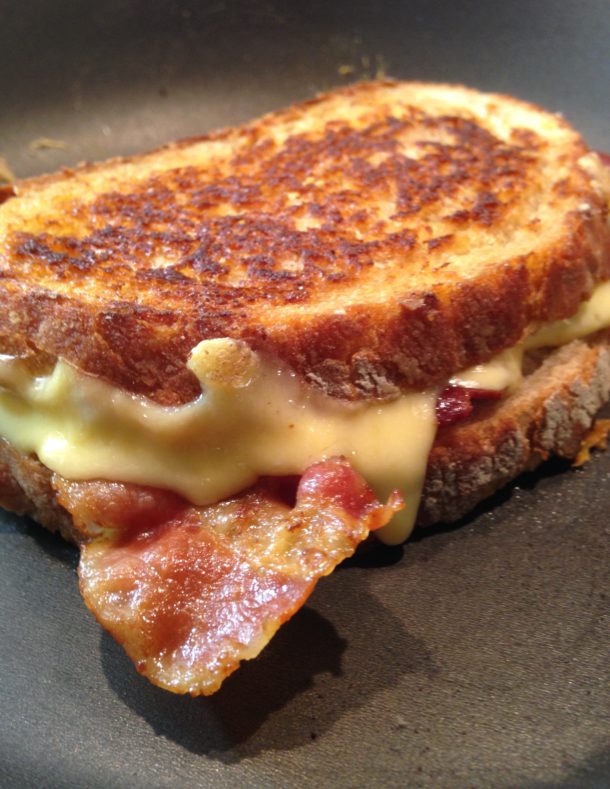A good chef will always tell you to watch the amount of salt you add to a dish you’re cooking. Despite those old wives tales about potato slices soaking up salt (which don’t actually work), there actually isn’t a good way to remove excess salt from over salted food. But don’t despair! If you do end up accidentally oversalting your dish, there are a couple of kitchen tricks that every good chef and home cook knows can salvage an otherwise perfectly good meal.
How to De-Salt Soup
Soup is easy, because with soup you can just add additional liquid to dilute the additional salt. Water or broth (low sodium will work best) will do, and all you need to do is slowly add more liquid while stirring. You’ll want to taste it after each addition of water or broth to see when the flavor evens out. For stews and thicker liquids, you can add a little bit of sugar to even out the salt and make it less noticeable. This works well in dishes like chili, where you can stand to add a bit of sweetness.
How to De-Salt Meat
If your oversalting happened as you were seasoning your meat before cooking it, you can always wash it off and start again. However, if you end up adding too much salt during or after the meat has cooked, you can save the meal by serving it with or on top of a grain that’s not salted, such as rice or cous cous. That way, the grains will offset the salt on the meat during each bite. It’s not a perfect solution, but it’s a lot better than having to throw out a full meal.
How to De-Salt Everything Else
Now on to everything else! For dishes that are mixed, like pastas, mashed potatoes, and other similar things, mixing in a few drops off something acidic can help cut through the salt.
- Lemon or Lime – A few drops of an acid like lemon or lime juice will help even out the saltiness of a dish. Choose between the two depending on the flavor of the actual dish. Only use a few drops and then taste after each addition to figure out how much you need to fix the dish you’re cooking.
- Vinegar – Vinegar is also an acid, which means it does a good job of helping to cut through too much saltiness in food. Like the lemon juice and lime juice, adding a minimal amount to the dish, as you stir and taste is key since vinegar has a very strong taste and you don’t want to alter the flavor too much.
- White Granulated Sugar or Brown Sugar – For mixed dishes and dishes like chili, a small spoonful of brown sugar or regular ‘ole white granulated sugar can quickly fix the problem of too much salt. While the sweetness of sugar can balance out the sodium, adding too much can make your dish too sweet, so keep an eye on how much you’re adding and taste it frequently to adjust the amount you need to add.
- Oil – For sauces, marinades, and salad dressings, adding a little bit of oil can help cut down the saltiness. This goes back to the same principles that help cut the salt in soup dishes: dilution. Since most dressings and marinades are oil based, adding more oil will dilute the recipe and help manage oversalting.
- Sour Cream – Another option for soups and mixed dishes is to add something creamy. Sour cream and heavy cream are generally used for this, as they can thicken up soups without changing the flavor profile too much. It can also work wonders for mashed potatoes and similar dishes, since the sour cream weakens the salt flavor, and also adds the creaminess that you want in mashed potatoes.
Do you have any tried and true methods for salvaging over salted food? Share your tips with us in the comments!






Fixing over salted chili: Don’t salt chili until after adding canned items since they contain salt. To reduce salt taste I added lemon juice and sugar which worked great.
Thanks for the tip Sandy! Really great ideas!
I used to much salt in my cormbread dressing. Is there anything I can do.
Hi Jeanne,
I am sorry to hear this. This is a tough one. The only thing you can really do in this case is to dilute it with some extra corn bread or other unsalty ingredients. You will end up with more dressing, but it won’t be over salted.
Best of luck with it and happy holliday!
Matthew
Too much salt in cabbage. Anything I can do to fix it?